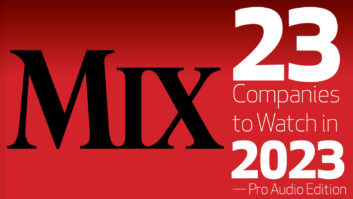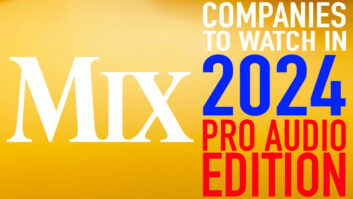The Career Development Center at Berklee College of Music has released the 2012 Edition of Music Careers In Dollars and Cents, a report highlighting the salary ranges in the United States for music professionals, including positions in the Pro Audio field.

While most of the data is collected through first hand interviews and from various surveys of the music, TV, film, etc. industries, the document provides those searching for jobs with a snapshot of the industry as they move forward in their careers.
Compared to Berklee’s statistics released in 2010, most Pro Audio professions have seen little change in the salary range. “The whole thing is affected by the sluggish economy we’re in,” commented Peter Spellman, Director of Career Development at Berklee College of Music. “It affects the price points on fees and salaries, but there are no real blazing differences between 2010 and 2012.”
Here’s some sample salaries from the new edition of the survey:
Audio Lead
Video Games $60,000 – $95,000
Director of Audio Video Games $70,000 – $140,000
Audio Tool Developer Video Games $45,000 – $150,000
Sound Designer Video Games $40,000 – $120,000
Location Sound Recordist Film/ TV
$35,000 – $140,000
Supervising Sound Editor Film/ TV
$80,000 – $140,000
Mixer
Film/ TV
$40,000 – $120,000
Foley Artist
Film/ TV
$35,000 – $75,000
ADR Recordist Film/ TV
$25,000 – $150,000
Private Teacher Education
$30 – $120/ hour
Asst. Professor Education
$43,000 – $67,000
On the recording side, Berklee estimates the head producer makes between $25,000 and $1,000,000 a year, while the engineer earns between $25,000 and $150,000. The Assistant Engineer (if there is one for a particular studio) earns between $18,000 and $25,000 a year, according to Berklee.
Spellman said the main reason for the large range for the producer is an effect of smaller home studios becoming more common. While some producers at major studios still fall closer to the $1 million side of the salary range, many producers today are using the more affordable DAW products to produce music for smaller bands and artists.
“There’s really quite a spectrum there,” Spellman said. “Of course, there are some producers collecting big fees to do recordings and they also collect royalties, while others are paid by the project.”
For live sound, Berklee estimates the Monitor Engineer makes between $35,000 and $60,000 a year, while the FOH Engineer makes $60,000 to $120,000 a year. Sound technicians, who monitor the house sound at a specific venue, make between $27,000 and $65,000 annually.
Other professions the document highlights includes those in audio recording for film, TV and video games, and Spellman said he is seeing a trend with graduating students where they must seek jobs outside the live sound/ recording industries.
“Kids going into the music production and engineering programs need to consider themselves more broadly as ‘audio producers.’ A lot of students have found opportunities outside the recording world, and with changes in the recording studio situation and the rise with personal studios, they need to explore ways to use their audio skills,” said Spellman.
Spellman also said with the recent success of online education, many audio professionals in the industry are turning to teaching. “For audio technology, the online format allows them to teach,” Spellman said.
And because the music industry is seeing such dramatic changes, Spellman said that looking forward, music and audio professionals should find new and innovative ways to keep up with the demands of consumers, while still making money.
“We’re in this incredible transition in the industry,” Spellman said. “I think the appetite for music will keep growing, but the challenge is for musicians to monetize products that have been affected by trends. Musicians need to think less about where music is sold, and more where music is used.”
Download the full Music Careers In Dollars and Cents document
www.berklee.edu/studentlife/cdc.html
What do you think of the state of pro audio salaries? Is Berklee’s assessment accurate in your eyes? Share your thoughts below!






